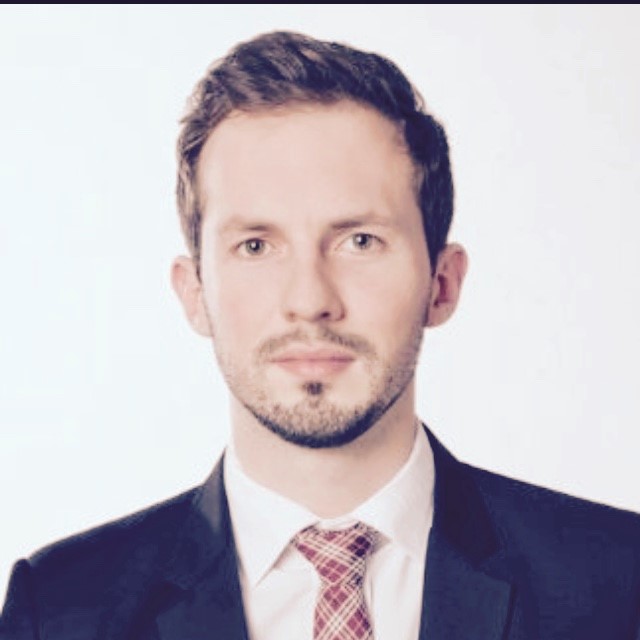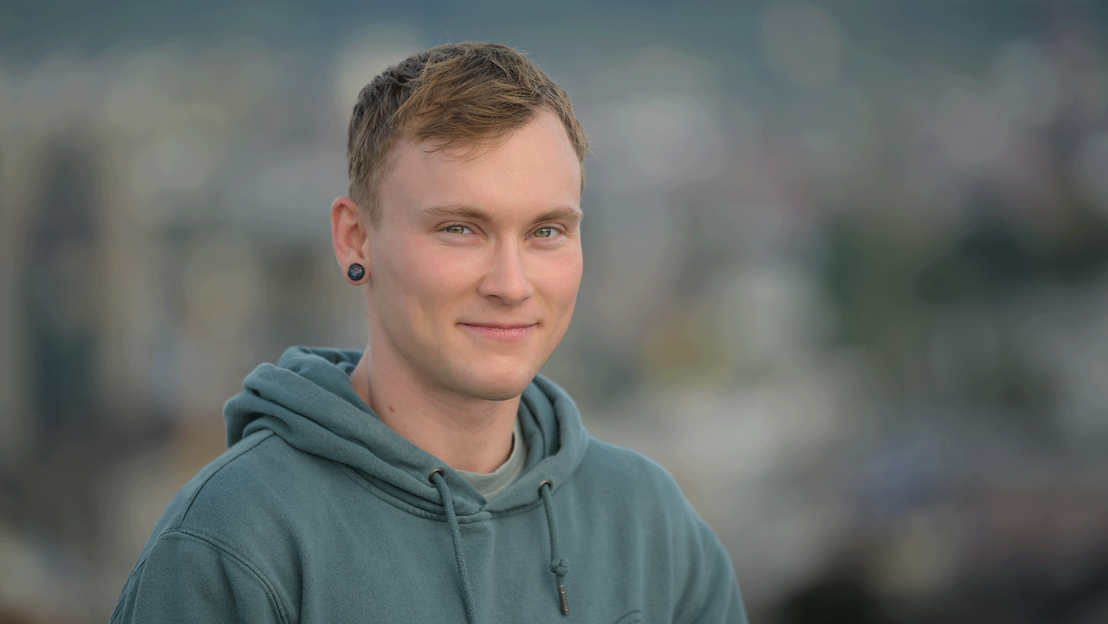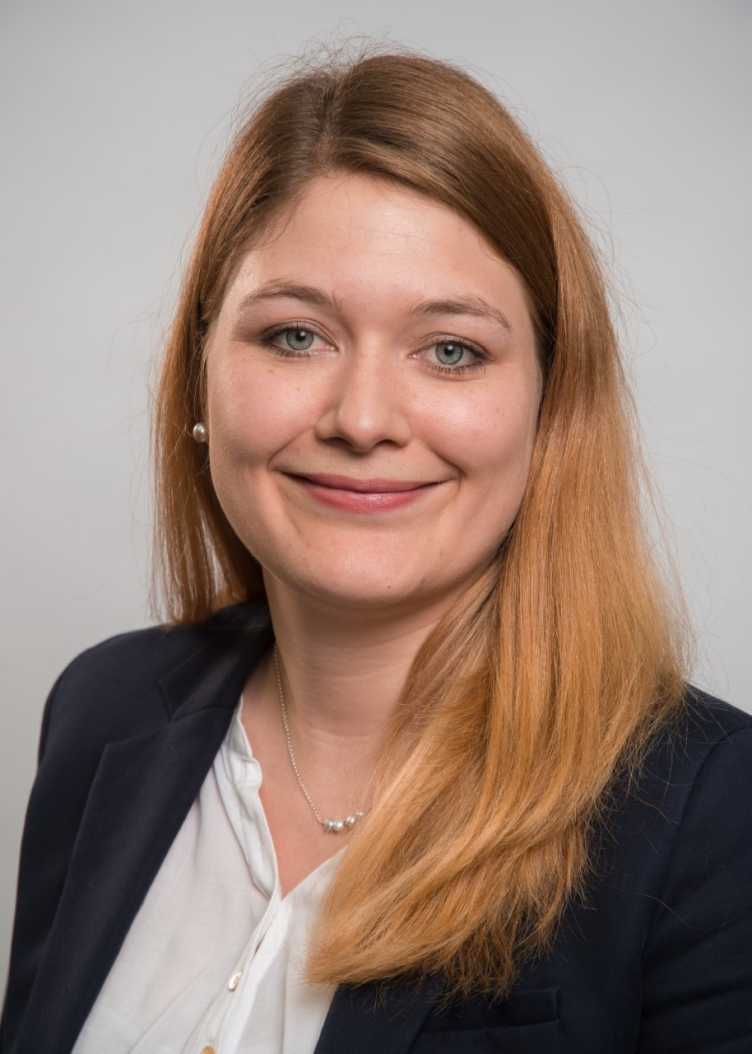Researchers
Our yet small, but growing research team is affiliated with the Institute of Translational Medicine. To be able to translate the results from basic research into a clinical outcome requires interdisciplinary teams - this is the heart of our research.

Prof. Matzinger's research focuses on precision medicine approaches, such as spectral and metabolic imaging and tumor gene sequencing, to deepen the understanding of tumor biology and inform treatment planning. He has participated in significant research projects aimed at enhancing the homogeneity, quality, accuracy, and effectiveness of radiation therapy.
Prof. Oscar Matzinger is a distinguished radiation oncologist with over 20 years of clinical practice dedicated to delivering the highest quality of patient care. Throughout his career, he has emphasized the integration of teaching and clinical research as fundamental components of exceptional healthcare.
As the Medical Director for Radiation Oncology at Swiss Medical Network, Prof. Matzinger oversees multidisciplinary teams of radiation oncologists, physicists, and therapists across multiple clinics. He has spearheaded the development of innovative treatment techniques and protocols, significantly improving patient outcomes. His initiatives to streamline clinical workflows and enhance collaboration with other healthcare providers have led to better patient experiences and increased operational efficiency.
At ETH Zurich's Department of Health Sciences and Technology, Prof. Matzinger bridges clinical practice with academic research. He provides students with a clinically grounded introduction to radiation therapy, highlighting technological advancements and their practical applications. His role enhances the department's mission to integrate cutting-edge research with practical clinical expertise, enriching the educational experience and advancing the field of radiation oncology.

Noé Brasier MD is a medical doctor by training with a board certification in internal medicine from FMH. His research focuses on the translation of wearable body-fluid analysis - especially sweat - into clinical application. Body-fluid analysis by wearable devices inherits the potential to revolutionize state of the art patient care by enabling a continuous, mostly non-invasive, and lab-independent biochemical monitoring of health and disease. Noé graduated from MedSchool of the University of Basel, Switzerland, and received his medical doctoral degree in 2018 from the University of Basel.
After concluding his clinical training in general internal medicine, he was awarded a prestigious MedLab Fellowship by ETH Zurich as well as an Early-career Fellowship from Collegium Helveticum in Zurich. Noé Brasier teaches translational science at the department of health science and technology. Further, Noé has initiated the Next-generation Digital Biomarkers Summit, an annual event bringing together all stakeholders involved in the full translational chain of body-fluid analysis by wearable devices.
Noé is the PI of the SNSF Lead Agency Project "Age Resist".
Pronouns: he/him
Contact
Dep. Gesundheitswiss. und Technol.
Im Ergel 1 (Partnerhaus)
5404
Baden
Switzerland

Ieuan Clay is the Director of Science at Vivosense, where he leads the research and development efforts that drive the company’s innovation. His work is pivotal in advancing the development and regulatory progression of digital measures and enhancing digital evidence services in clinical trials. Ieuan is also an associate researcher at the Institute for Translational Medicine and ETH Zurich, where he also lectures on Digital Health and Clinical Evidence Generation. Additionally, he serves on the Editorial Board of Karger Digital Biomarkers.
Ieuan’s journey began with a PhD from the University of Cambridge, where he specialized in technology and analytics development. His career took off at Novartis Research in 2010, where he established and led the Digital Endpoints group within Translational Medicine, pioneering the implementation of digital measures in trials and advancing the EMA qualification of real-world gait speed. His subsequent roles included driving research strategy at Evidation Health, where he contributed to building their Heart Health patient engagement platform, and serving as Chief Scientific Officer at the Digital Medicine (DiMe) Society, where he was responsible for scientific strategy and output.
For more about Ieuan, visit linktr.ee/ieuanclay.
Research Interests: My research centres on integrating contextual data into clinical outcome models to enhance the accuracy and relevance of clinical trials. Traditional trials often overlook the critical role of context—social, environmental, and personal factors—that accounts for much of the variation in outcomes. By developing systems to capture and model this contextual variation, I aim to standardize its representation, making trials more powerful and reducing their size. This approach rethinks evidence collection, ensuring it is better connected to the lived experiences of patients, ultimately leading to more efficient and meaningful clinical research.
Current Projects:
1. Systematic Literature Review and Ontology Development: This project explores how "context" is conceptualized in clinical research models across various therapeutic areas, aiming to create a standardized ontology for integrating contextual data.
2. Modeling Contextual Data with the StudentLife Dataset: This project analyzes the StudentLife dataset to model how contextual factors influence outcome variability, with the goal of demonstrating proof-of-concept that trial sizes could be reduced by accounting for contextual variability.
Pronouns He/his

Max is our innovation enthusiast with a great focus on achieving actual change in healthcare provision in Switzerland. At D-HEST, he is a PhD Candidate focusing on the question of how digital innovations can effectively diffuse in the Swiss healthcare system. Also, he heads the Health Innovation Hub at the Kantonsspital Baden, the partner hospital of ETH Zürich in the field of medical education. There, he is particularly entrusted with the task of identifying and implementing the latest digital health innovations.
Moreover, Max sits on several committees of national research projects or incubators in the field of digital health. Also, he is founder of a start-up in the field of sustainable nutrition and worked for several years as a strategy consultant with a focus on innovation for large corporations.
Pronouns: he/him
Email:

JD is a PhD Candidate specializing in Translational Medicine, with a keen focus on integrating wearable devices into healthcare systems. Building on a Master’s degree in Health Science and Technology, coupled with hands-on experience as a personal trainer, JD has a good understanding of human physiology and digital health interventions.
He advanced into a leadership role by coordinating the CoVMass COVID-19 testing program at ETH Zurich, where they successfully managed the large-scale testing initiative during a critical period of the pandemic. This experience refined JD's expertise in project management and healthcare innovation.
Currently, JD's research explores the potential of wearable technology to revolutionise patient monitoring and improve healthcare outcomes. This work is dedicated to closing the gap between cutting-edge wearable technologies and their practical application, driving the development of more effective, personalised, and proactive healthcare solutions.
Pronouns: they/them or he/him
Contact
Medizinausbildung ETH
Leopold-Ruzicka-Weg 4
8093
Zürich
Switzerland

Stephanie Stalder completed her Master’s degree in Neuroscience at the ETH Zürich in 2018. During her Master thesis she worked in the field of clinical gait analysis at the Spinal Cord Injury Center, Balgrist University Hospital, Switzerland. Her focus during the Master thesis was on the investigation of targeted treadmill walking in healthy and spinal cord injured individuals. From October 2018 she started her position as a research assistant in the Neuro-Urology group at Balgrist University Hospital in the team of Prof. Dr. med. Thomas M. Kessler. In this year she gained insights into the field of neuro-urology, the preparation of multicentre RCTs and expanded her experience at the Spinal Cord Injury Centre. Since October 2019, she focused more on the research rather than the administrative side starting a SNSF-funded doctorate at the Department of Neuro-Urology, Balgrist University Hospital, University Zürich. Specifically, she is using neurophysiological assessments investigating neuromodulation and neural correlates of neurogenic lower urinary tract dysfunction.
In the bTUNED and TASCI projects she is involved in the daily conduct of the study such as daily TTNS intervention at patient’s bedside, clinical neurophysiological examinations and multichannel neurophysiological assessments of all patients.
Pronouns: she/her
Email:

Vanessa Matos is a biomedical engineer with a strong drive to advance health science and bring research from the lab to clinical practice. Originally from Portugal, she began her academic journey at the University of Minho in Braga (Portugal), earning her degree in biomedical engineering with a major in medical electronics. Motivated by the potential of new medical technologies to improve patient care, Vanessa conducted her master’s research at the University of Freiburg, IMTEK, and Hahn-Schickard (Germany), where she developed a point-of-care device for real-time LAMP (Loop-mediated Isothermal Amplification) detection, gaining invaluable experience at the intersection of bioengineering and healthcare innovation.
Prior to starting her PhD, Vanessa worked for over two years as a biomedical scientist at a med-tech startup in Switzerland, where she was part of a pioneering team developing a wearable, transcutaneous device for continuous glucose monitoring. In this role, she managed sample preparation and collection in an S2 laboratory as a trained phlebotomist, led clinical research efforts and contributed to clinical trials across Swiss and European institutions. Working closely with study participants deepened her passion for connecting with people and reinforced her commitment to developing impactful healthcare solutions. Vanessa also contributed to method evaluation, validation, and implementation, focusing on reference data acquisition to support prototype development. In addition, she took on project management responsibilities, effectively coordinating research processes and fostering collaboration across multidisciplinary teams.
Vanessa is currently a PhD candidate in the Department of Health Science and Technology at ETH Zurich. Her research focuses on developing a novel, sweat-based age clock for resilience assessment as part of the AGE-RESIST Lead Agency project, a joint effort funded by both the Swiss National Science Foundation (SNSF) in Switzerland and the U.S. National Science Foundation (NSF).
Pronouns: she/her
Contact
Goldhahn, Jörg (Tit.-Prof.)
Leopold-Ruzicka-Weg 4
8093
Zürich
Switzerland

Sebastian Warma is a joint PhD candidate at ETH Zurich and Novartis, where he is at the forefront of research that bridges neuroscience and data science. With a robust academic foundation, Sebastian earned a double major in Neuroscience and Economics (BSc) from Trinity College, University of Toronto, Canada. His early research into the gut-brain axis and mood disorders at the University Health Network (UHN) in Toronto laid the groundwork for his passion for understanding complex neurological interactions.
Building on this foundation, Sebastian pursued an MSc in Neuroscience at ETH Zurich, he worked in the Decision Neuroscience Lab, focusing on neuromodulation, and in the Rehabilitation Engineering Lab (RELab), where he developed real-time algorithms for closed-loop neural stimulators. His expertise was further honed during his tenure at Novartis in Basel, where he worked on the AI strategy for clinical trials, collaborating closely with the Clinical Development Neuroscience team.
Now, as a joint PhD candidate in the Department of Health Sciences and Technology, Sebastian is dedicated to pioneering research on novel digital biomarkers for neurodegenerative diseases, particularly Parkinson’s disease. His work aims to deepen our understanding of disease progression and states, ultimately leading to the development of improved endpoints in clinical trials. Through his research, Sebastian is striving to make a lasting impact on the field of neuroscience and the future of neurodegenerative disease treatment.
Pronouns: he/him
Email:
Flora Chiper is a MD-PhD candidate at ETH Zurich and Balgrist University Hospital, where she focuses on orthopaedic applications of 3D bioprinting. Specifically, in the host lab (Tissue Engineering and Biofabrication Lab), Flora works on surgical translation of a novel method for articular cartilage regeneration using in-situ 3D bioprinting with Filamented Light (FLight) technology. Thanks to the collaboration with Balgrist University Hospital, she is able to bring clinical insight from working with orthopaedic patients into the laboratory to fuel her research towards outcomes that benefitthe patients.
Previously, Flora completed her medical studies with a
BSc in Human Medicine at ETH Zurich and an MMed at the University of Basel. She also worked on cartilage regeneration from a developmental biology perspective using pluripotent stem cells at Boston Children’s Hospital / Harvard Medical School under Prof. April Craft. Further, she collaborated with Prof. Ivan Martin and PD Dr. Karoliina Pelttari at University of Basel for her master’s thesis on nasal chondrocytes. Her previous research activity was funded by a competitive excellence scholarship of the Werner Siemens Foundation. Her current PhD studies are funded by the Balgrist and the Vontobel Foundation.
Email: